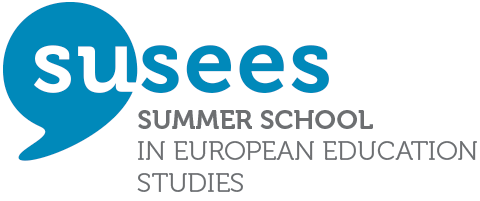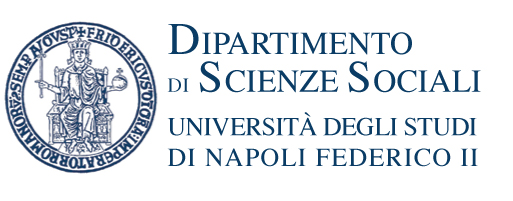Eric Mangez – (University of Louvain, BE)
Professor in Sociology, University of Louvain, Belgium. He is specifically interested in the sociology of knowledge and the knowledge – policy relationship. His current work area deals with the role of knowledge in governing/governance. He has been the co-director of a large FP6 Integrated project funded by the European Commission and dealing with “the role of knowledge in the construction and regulation of education and health policy across Europe” (KNOWPOL). He have published several papers, chapters in books and monographs. All publications can be found at http://www.uclouvain.be/eric.mangez. He teaches general sociology, method and political sociology at the University of Louvain. Specialties: His theoretical and empirical research expertise is in education(al) policy.
Abstract of the lecture
Download Mangez Observations on Education and Late Modernity
An Invitation to Think with Luhmann’s System Theory
A Difficult Invitation: Confronting Bourdieu with Luhmann
The Form of (Modern) Society – Part I
The Form of (Modern) Society – Part II
History of the Future
Download Mangez Observations on Education and Late Modernity
Readings
Abbott, A. D. (2001). Chaos of Disciplines. University of Chicago Press. Alliance Athena (2016), Recherches sur les radicalisations, les formes de violence qui en résultent et la manière dont les sociétés les préviennent et s’en protègent, Rapport remis à M. Thierry Mandon, http://cache.media.education.gouv.fr/file/03_-_mars/22/9/Rapport_Radicalisation_545229.pdf?ts=1457090184 Archer, M. (1996). Social integration and system integration: developing the distinction. Sociology, 30(4), 679-699. Ball, S. J. (1999) Global Trends in Educational Reform and the Struggle for the Soul of the Teacher! Paper presented at Annual Conference of the British Educational Research Association Conference, University of Sussex, September 2–5. Ball, S. J. (2000). Performativities and fabrications in the education economy: Towards the performative society? The Australian Educational Researcher, 27(2), 1-23. Ball, S. J. (2012). Performativity, commodification and commitment: An I-spy guide to the neoliberal university. British Journal of Educational Studies, 60(1), 17-28. Beck, U. (1992). Risk Society: Towards a New Modernity. Sage. Beck, U. (2009). World at Risk. Polity. Biesta G (2010) Good Education in an Age of Measurement: Ethics, Politics, Democracy. Boulder, CO: Paradigm. Boudon, R. (2013), The Origin of Values. New Brunswick, NJ: Transaction. Carvalho, L. M. (2012). The fabrications and travels of a knowledge-policy instrument. European Educational Research Journal, 11(2), 172-188. Cattonar, B. and Mangez, E. (2014) Codages et recodages de la réalité scolaire. PISA dans la presse écrite de Belgique francophone. In: Revue internationale d’éducation Sèvres, 66, 61-70. Charlier J.-E. (2003). L'influence des organisations internationales sur les politiques d'éducation. La douce violence de la “Méthode ouverte de coordination” et de ses équivalents, Education et sociétés, n° 12 (2), 5-11. Charlier, J. E., and Croche, S. (2005). How European integration is eroding national control over education planning and policy. European Education, 37(4), 7-21. Clam J. (2004). Passion sans terme ou travail de deuil: Regard sociologique sur la psychothérapie et les dilemmes des choix intimes, in Mana, Revue de sociologie et d’anthropologie, n° 10, 241-278. Croché, S. (2008). How and why the European Commission has acquired the right to vote in a Europeanization process in a field of national competency. European Education, 40(1), 8-19. Dale, R., & Robertson, S. L. (2007). New arenas of global governance and international organisations: Reflections and directions. Transformations of the State and Global Governance. London: Routledge, 2-10. Delanty, G. and Rumford, C. (2005) Rethinking Europe: Social Theory and the Implications of Europeanization. Oxford: Routledge. Delvaux, B. and Mangez, E. (2013) Le rôle des connaissances dans le champ de l’éducation belge francophone: de la nécessité de discrétion au développement hétéronome de connaissances. In: Revue française de pédagogie, 182, 31-40 (janvier-février-mars 2013) Derouet J.-L. (ed.) (2000) L’Ecole dans plusieurs mondes. Brussels: De Boeck. Derouet J.-L., (1992) École et justice. De l’égalité des chances aux compromis locaux, Paris, Métailié Derouet, J. -L. (2000). Pluralité des mondes et coordination de l’action: l’exemple des établissements scolaires. L’école dans plusieurs mondes, Paris-Brussels, INRP-De Boeck Université, 125-143. Derouet, J.-L., Mangez, E. and Benadusi, L. (2015) Introduction to the EERJ dossier: Where is the comprehensive project in Europe today? In: European Educational Research Journal, 14 (3/4), 195-205. Dubet F. (2002) Le déclin de l’institution. Paris, Le Seuil. Dubet F. (2005). “Pour une conception dialogique de l’individu”, EspacesTemps.net, Travaux, 21.06.2005 http://www.espacestemps.net/articles/conception-dialogique-individu/ Dubet, F. (2014). Sociologie de l’expérience. Seuil. Durkheim, E. (1922). Sociologie de l’éducation. Paris, PUF. Esposito, E. (2013) Economic Circularities and Second-Order Observation: The Reality of Ratings. Sociologica (2): 1–20. European Commission (2015), Communication from the Commission to the European Parliament, the Council, the European Economic and Social Committee and the Committee of the Regions, Com (2015) 408, Brussels 26.8.2015. European Commission (2016) Education and Training 2020. Working Groups Mandates 2016-2018, Brussels. Forquin, J.-C. (2008). Sociologie du curriculum. Rennes : PUR, 202 p. Freeman, R., Mangez, E. (2013) For a (self-)critical comparison. In: Critical Policy Studies, Vol. 7, no.2, p. 198-206. Garud, R., Hardy, C., & Maguire, S. (2007). Institutional entrepreneurship as embedded agency: An introduction to the special issue. Organization Studies-Berlin-European Group For Organizational Studies-, 28(7), 957. Gellner, E., and Breuilly, J. (2008). Nations and Nationalism. Cornell University Press Gornitzka, Å. (2006). The open method of coordination as practice: A watershed in European education policy? (Vol. 16, p. 2006). Arena. Gornitzka, Å. (2015). ‘All in’? Patterns of Participation in EU Education Policy. In Evaluating European Education Policy-Making (pp. 92-123). Palgrave Macmillan UK. Grek, S. (2009). Governing by numbers: The PISA ‘effect’ in Europe. Journal of education policy, 24(1), 23-37. Grek, S. (2010). International organisations and the shared construction of policy ‘problems’: Problematisation and change in education governance in Europe. European Educational Research Journal, 9(3), 396-406. Grek, S., Lawn, M., Lingard, B. and Varjo, J. (2009) ‘North by Northwest: Quality assurance and evaluation processes in European education’, Journal of Education Policy, 24(2): 121–133. Grootaers, D. (1995). L’enseignement technique et professionnel masculin en Belgique: aux sources d’une identité. Revue des sciences de l’éducation, 21(4), 755-780. Hargreaves, A. (2000). Four ages of professionalism and professional learning. Teachers and Teaching: Theory and Practice, 6(2), 151-182. Hartong, S. (2016). Between assessments, digital technologies and big data: The growing influence of ‘hidden’data mediators in education. European Educational Research Journal, 15(5), 523-536. Haveman, Heather A., and Robert J. David (2008). Organizational ecologists and institutionalists: Friends or foes? In Royston Greenwood, Christine Oliver, Kerstin Sahlin, and Roy Suddaby, eds., The SAGE Handbook of Organizational Institutionalism: 571-593. Thousand Oaks, CA: Sage. Henry, M., Lingard, B., Rizvi, F., and Taylor, S. (2001). The OECD, globalisation and education policy (p. 90). Oxford: Pergamon. Hogan, A., Sellar, S., and Lingard, B. (2016). Commercialising comparison: Pearson puts the TLC in soft capitalism. Journal of Education Policy, 31(3), 243-258. Holzer, B., Kastner, F., and Werron, T. (2014). From globalization to world society: neo-institutional and systems-theoretical perspectives. Routledge. Jellab A. (2005). Les enseignants de lycée professionnel et leurs pratiques pédagogiques : entre lutte contre l'échec scolaire et mobilisation des élèves. Revue française de sociologie, Vol. 46, n°2, 295-323. Jessop, B., (1990). State theory: Putting the capitalist state in its place. Penn State Press. Kjaer, P. F. (2010). Between Governing and Governance: On the Emergence, Function and Form of Europe’s Post-National Constellation. Bloomsbury Publishing. Lawn, M. (2003) ‘The “usefulness” of learning: the struggle over governance, meaning and the European education space’, Discourse: Studies in the Cultural Politics of Education, 24(3): 325–36. Lawn, M. and Lingard, B. (2002) ‘Constructing a European policy space in educational governance: the role of transnational policy actors’, European Educational Research Journal, 1(2): 342–59. Luhmann, N. (1995). Social systems. Stanford University Press. Luhmann, N. (1998). Observations on modernity. Stanford University Press. Luhmann, N. (1997). Globalization or world society: how to conceive of modern society?. International review of sociology, 7(1), 67-79. Luhmann, N. (2002). Theories of Distinction: Redescribing the Descriptions of Modernity. Stanford: Stanford University Press. Luhmann, N. (2012). Theory of Society (Vol. 1). Stanford: Stanford University Press. Mangez É., (2010) Global knowledge-based policy in fragmented societies: the case of curriculum reform in French-speaking Belgium, European Journal of Education, Vol 45, p. 60-73. Mangez, E. and Hilgers, M. (2012) The Field of Knowledge and the Policy Field in Education: PISA and the production of knowledge for policy, European Educational Research Journal, Vol. 11, no. 2, p. 189-205. Maroy C., (2008), Vers une régulation post-bureaucratique des systèmes d’enseignement en Europe?, Sociologie et Sociétés, 40/1, 31-55. Maroy, C., & Mangez, C. (2011). La construction des politiques d’évaluation et de pilotage du système scolaire en Belgique francophone: nouveau paradigme politique et médiation des experts. Gouverner l’éducation par des nombres, 53-76. Maroy, C., & Mangez, C. (2008). Rationalisation de l’action publique ou politisation de la connaissance?. Revue française de pédagogie. Recherches en éducation, (164), 87-90. Mead, J.H. (1963) [1934]. L’esprit, le soi et la société, Paris, PUF Molla, T. (2014). Knowledge aid as instrument of regulation: World Bank’s non-lending higher education support for Ethiopia. Comparative education, 50(2), 229-248. Muller, P. (2000). L'analyse cognitive des politiques publiques : vers une sociologie politique de l'action publique. Revue française de science politique, 50ᵉ année, n°2, 189-208. Nóvoa A. and Yariv-Mashal, T. (2003). Comparative research in education: A mode of governance or a historical journey?. Comparative education, 39(4), 423-438. Nóvoa, A., and Lawn, M. (2002). Fabricating Europe. The formation of an education space. Dordrecht, Países Bajos: Kluwer Academic Publishers. Ozga, J. (2008). Governing Knowledge: research steering and research quality. European Educational Research Journal, 7(3), 261-272. Ozga, J. (2009) ‘Governing education through data in England: From regulation to self-evaluation’, Journal of Education Policy, 24(2): 149–162. Ozga, J., and Jones, R. (2006). Travelling and embedded policy: the case of knowledge transfer. Journal of education policy, 21(1), 1-17. Ozga, J., and Lingard, B. (2007). Globalisation, education policy and politics. The RoutledgeFalmer reader in education policy and politics, 65-82. Pépin L. (2006). Histoire de la coopération européenne dans le domaine de l’éducation et la formation. Comment l’Europe se construit – Un exemple, Luxembourg, Office des publications officielles des Communautés européennes. Rosa, H. (2010). Alienation and acceleration: towards a critical theory of late-modern temporality. Aarhus Universitetsforlag. Rose, N. (1991) Governing by numbers: Figuring out democracy, Accounting, Organizations and Society, 16(7): 673–692. Sarup, Madan (1996). Identity, Culture and the Postmodern World. Edinburgh: Edinburgh University Press. Simons M. (2014) Governing Through Feedback: From National Orientation Towards Global Positioning. In: Fenwick T., Mangez E., Ozga J., World Yearbook of Education 2014. Governing Knowledge: Comparison, Knowledge-Based Technologies and Expertise in the Regulation of Education, London and New York: Routledge. Taylor and Francis Group, 155-171. Surel, Y. (2000). The role of cognitive and normative frames in policy-making. Journal of European public policy, 7(4), 495-512. Teubner, G. (1996). Global Bukowina: Legal pluralism in the world society. In Gunther Teubner, Global Law Without a State, ed., Dartsmouth, 3-28. Todd S. (2015) Experiencing change, encountering the unknown: An education in ‘negative capability’ in light of Buddhism and Levinas. Journal of Philosophy of Education 49(2): 240–254. Van Haecht, A. (1985). L’enseignement rénové. De l’origine à l’éclipse, Brussels: Editions de l’Université de Bruxelles. van Zanten, A. (2009). Competitive arenas and schools’ logics of action: a European comparison. Compare, 39(1), 85-98. Verger, A. and M. Novelli (eds.). 2012. Campaigning For ‘Education For All’: Histories, Strategies and Outcomes of Transnational Social Movements in Education. Sense, Rotterdam, p.5. Verger, A., C. Lubienski, G. Steiner-Khamsi. (2016). The Emergence and Structuring of the Global Education Industry: Towards an Analytical Framework. In Verger, A., C. Lubienski, G. Steiner-Khamsi (eds). World Yearbook of Education 2016: The Global Education Industry. New York: Routledge. Vincent, G. (ed.) (1994) L’éducation prisonnière de la forme scolaire? Scolarisation et socialisation dans les sociétés industrielles. Lyon: Presses Universitaires de Lyon, 227 p. Werron T. (2015) What do Nation-States compete for? A World Societal Perspective on Competition for “Soft” Global Goods, In B. Holzer, F. Kastner and T. Werron, T. (eds). From Globalization to World Society: Neo-Institutional and Systems-Theoretical Perspectives. New York & London: Routledge, 85-106.


